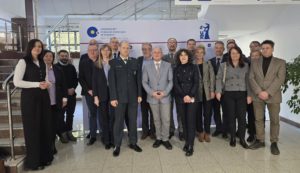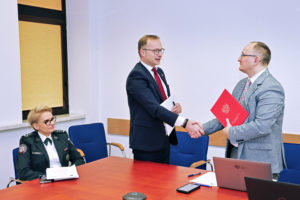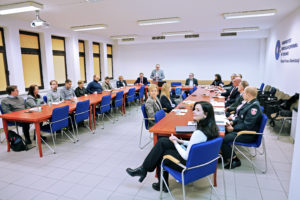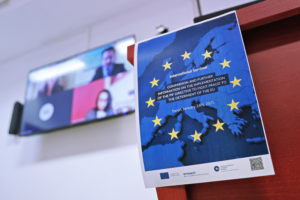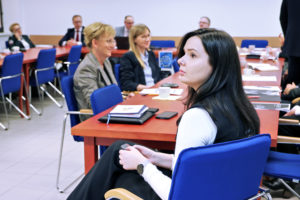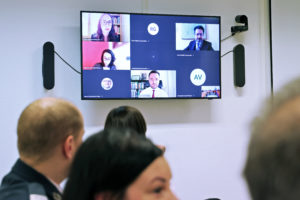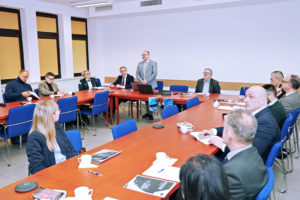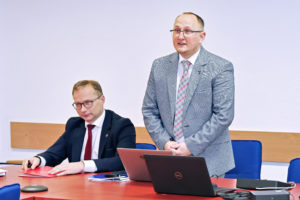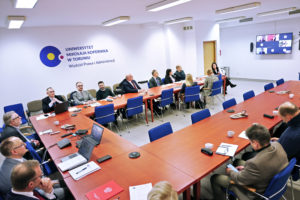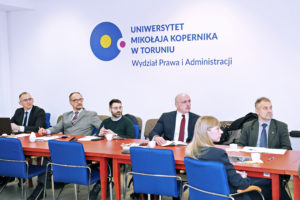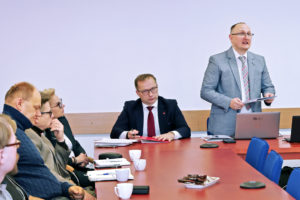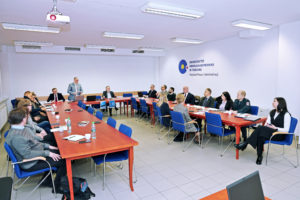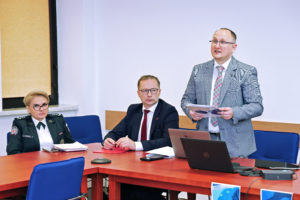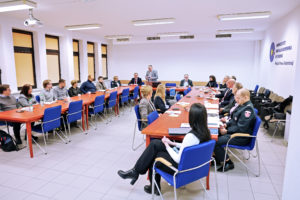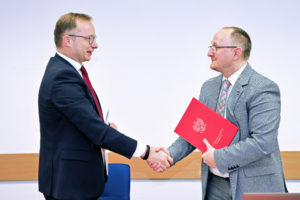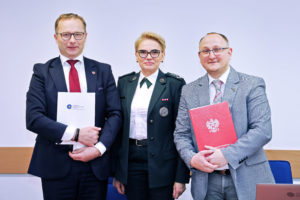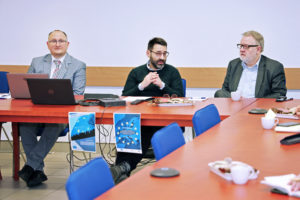On January 24th, at the Faculty of Law and Administration of Nicolaus Copernicus University in Toruń, an international seminar titled “Comparison and Further Information on the Implementation of the PIF Directive to Fight Fraud to the Detriment of the EU” was held as part of the research project BETKONEXT. The topic of the seminar has brought to the forefront some of the most pressing issues facing not only the EU but also its Member States in their ongoing efforts to protect the financial interests of the Union.
Over the course of sessions, we have been privileged to hear from some of the leading scholars and practitioners in the field, whose expertise has illuminated the complexities and challenges of implementing the PIF Directive across different legal systems and national contexts. The BETKONEXT project, which brought us together today, is an essential initiative that fosters a collaborative, multi-country approach to addressing fraud that threatens the financial stability of the European Union.
The seminar began the day by examining the protection of the financial interests of the EU in the light of domestic criminal law, an essential discussion led by Prof. Celina Nowak, Prof. Janusz Bojarski, and Dr. Natalia Daśko. Through their presentations, we gained deeper insights into how domestic legal frameworks are adapting to the demands of the Directive and the challenges that arise in aligning national laws with EU-wide objectives.
The discussions then turned to the impact of the PIF Directive on the tasks of AFCOS – Anti-Fraud Coordination Services – an essential part of the EU’s anti-fraud infrastructure. We were fortunate to hear from Tomasz Soczewka of the Polish AFCOS and Colonel Cruciano Cruciani from the Italian AFCOS, whose expertise provided us with a practical perspective on how AFCOS units are tackling fraud in their respective countries and what the Directive means for their operational mandates.
Lastly, the seminar addressed the protection of the financial interests of the EU in the practice of the activities of the Central Anti-Corruption Bureau, with a focus on the role of national law enforcement agencies in detecting and preventing fraud. Tomasz Drobek’s presentation shed light on the crucial role that national anti-corruption bodies play in ensuring that the EU’s financial resources are safeguarded.
The richness of seminar’s discussions has highlighted not only the progress that has been made in implementing the PIF Directive, but also the many challenges that remain. These challenges include legal, procedural, and institutional differences between member states, as well as the need for greater cooperation and coordination at both the EU and national levels. But what stands out most clearly is the shared commitment among all the speakers, researchers, and participants to advancing the protection of EU financial interests.
This seminar has demonstrated that the PIF Directive is more than just a legal framework – it is a vital instrument for ensuring that the EU remains resilient in the face of fraud and financial crime. The collaboration between countries like Italy, Belgium, Spain, and Poland as part of the BETKONEXT project shows that by sharing knowledge and best practices, we can identify solutions and strategies that work, while learning from each other’s successes and challenges.
BETKONEXT_Toruń_24th January 25
Photos and videos of the event:
